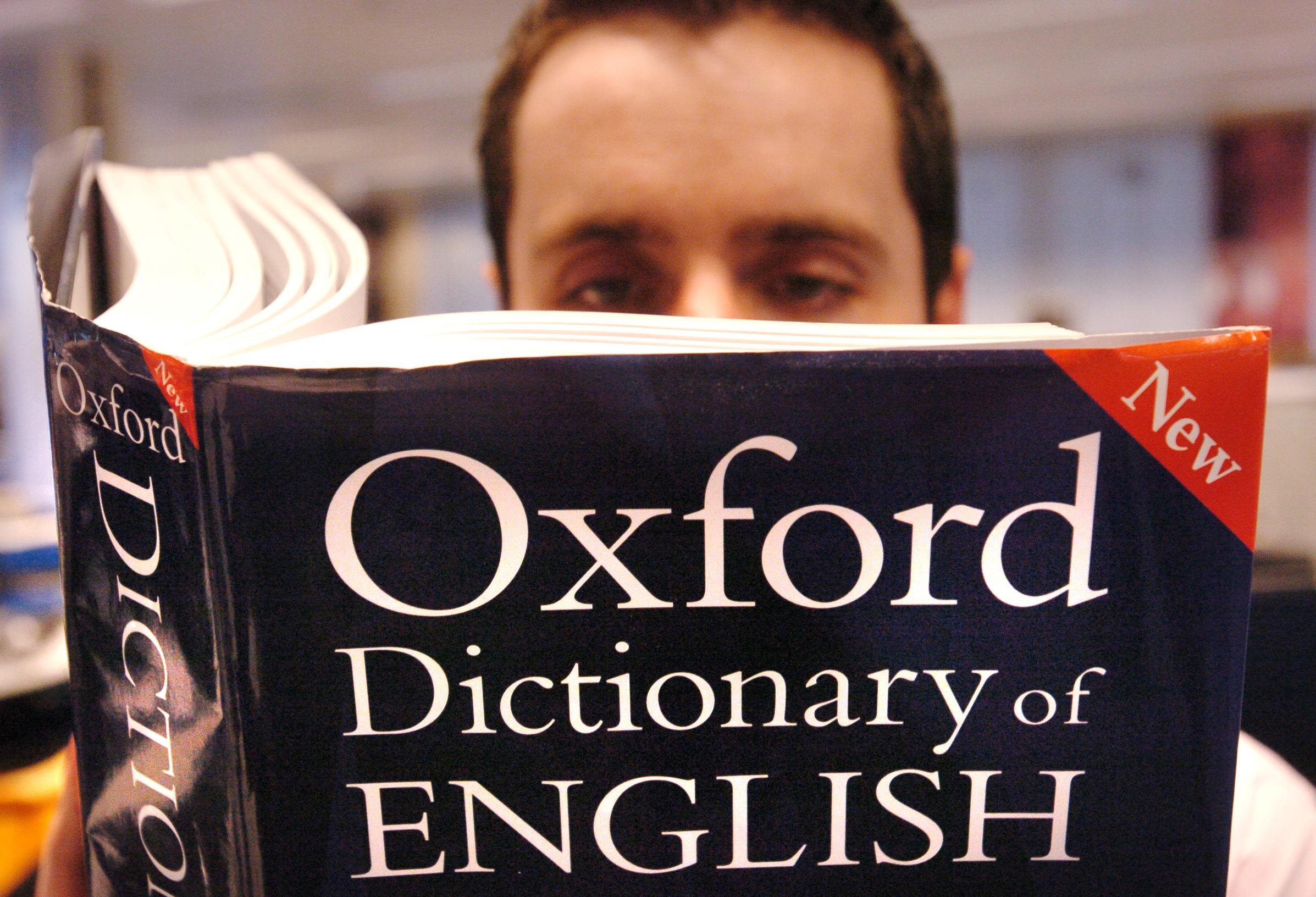
BRITONS are pulling on budgie smugglers to go wild swimming, discussing starter marriages at stupid o’clock and sipping craft beer while planning their next elimination diet.
TBH, not everyone will be bovvered by all of the 1,000 new words added to the Oxford English Dictionary (OED) in its latest quarterly update, which reveals current trends in the use of language.
Entries include air-punching – the action of thrusting a clenched fist into the air in elation or triumph – and bovver – part of the catchphrase of comedian Catherine Tate’s teenage character Lauren.
A number of internet slang acronyms such as ROFL (rolling on the floor laughing), ICYMI (in case you missed it), TBH (to be honest), and FWIW (for what it’s worth) also make the list.
Budgie smugglers, an Australian term used since the 1980s to refer to close-fitting swimming trunks, are featured in the update, along with Scandi crime thrillers and wild swimming.
The phrase “taking candy from a baby”, in which one exploits an easy opportunity, is included as well as “sister from another mister” – a term for a very close female friend first recorded in 1998.
Other entries include fro-yo, the short form for frozen yoghurt, dudettes – the female form of dude – and agender for designating people who do not identify themselves as a particular gender.
Starter marriages are short-lived first marriages, often in preparation for something more long-term, while stupid o’clock is a time outside one’s normal waking life.
In a blog on the latest update, Jonathan Dent, senior assistant editor of the OED, said it included more than 1,000 new words and senses and almost 2,000 fully revised or partially expanded entries.
These new entries and senses cover more than 1,200 years of English in use, from an Old English word first applied in the year 800 to an internet acronym originally seen in 2000.
“One inescapable factor of modern life is our increasing reliance on computers and digital communications,” Mr Dent wrote.
“A slew of initialisms associated with the social media, emails, texts, and other electronic means of communication are placed in their historical context for the first time in this update.
“Perhaps surprisingly, many of these abbreviations for common (and not so common) phrases predate the World Wide Web, with the Usenet newsgroup communities of the late 1980s and early 1990s providing most of our earliest citations.
“Among other initialisms are a range of different ways to indicate that you’re about to be AFK (away from the keyboard, first recorded in 1990) but hope to return shortly, including BRB ‘be right back’, TTYL ‘talk to you later’, ltr or l8r ‘later’ (all from 1988), SYS (‘see you soon’, 1993), and the more open-ended GTG (‘got to go’, 1994).
“There are also various ways to indicate either that you’re ‘just kidding’ (JK, 1990) or that someone else has (deliberately or unwittingly) managed to get you ROFL (‘rolling on the floor laughing’, 1989), including LMAO (‘laughing my ass off’, 1990) and the more emphatic (and profane) LMFAO (1993).”
Here are some of the new entries…
FWIW – short for “for what it’s worth”
ICYMI – “in case you missed it”
bish-bash-bosh – term used to describe the completion of a task with efficiency
budgie smugglers – an Australian term referring to a pair of close-fitting swimming trunks
starchitecht – a famous architect whose designs are considered extravagant, outlandish or incompatible with existing surroundings
air punch – an act of thrusting one’s clenched fist into the air, typically as a gesture of elation or triumph. Also when a blow from the fist does not strike a target
starter marriage – a short-lived first marriage, typically when viewed as preparation for one with more longevity
glamping – a form of camping involving accommodation and facilities more luxurious than traditional camping
mahalo – a Hawaiian expression of gratitude
spot the difference – a type of visual puzzle now often used ironically to suggest that two allegedly different people or things are actually interchangeable
bovver – alternative to bother, made famous by Catherine Tate
READ MORE

Enjoy the convenience of having The Sunday Post delivered as a digital ePaper straight to your smartphone, tablet or computer.
Subscribe for only £5.49 a month and enjoy all the benefits of the printed paper as a digital replica.
Subscribe